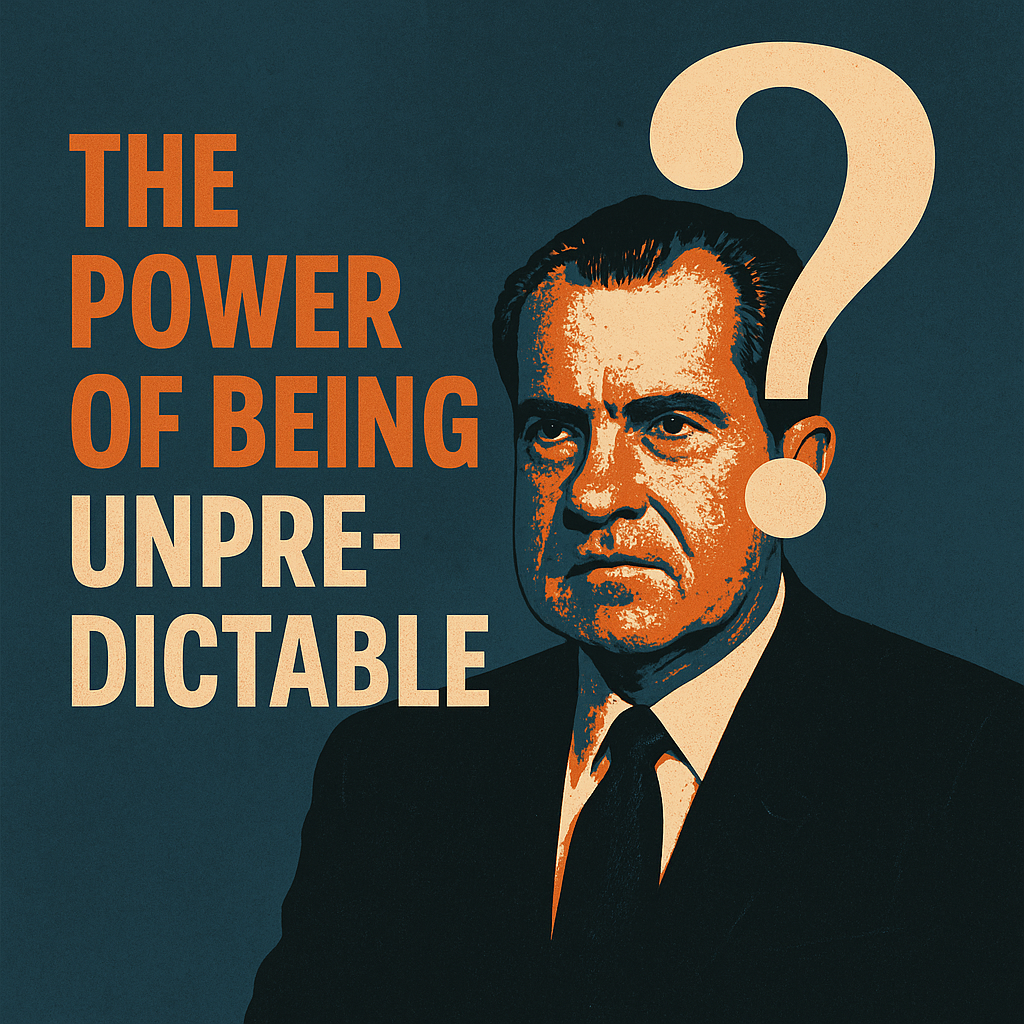In a world obsessed with patterns, forecasts, and predictability, there lies a rarely discussed source of power: unpredictability.
Whether in business, leadership, negotiations, or personal relationships, those who are too consistent become easy to anticipate—and therefore, easy to manipulate or resist. On the other hand, individuals who are unpredictable command attention, instil caution, and keep others perpetually on the defensive.

This article explores the psychology and strategy behind unpredictability, why it works, and how to apply it effectively without becoming chaotic or erratic.
Why Predictability Is a Weakness in Power Dynamics
People naturally seek patterns—they want to know what comes next so they can prepare, influence, or control outcomes. When your behaviour becomes predictable:
- You become easy to outmanoeuvre.
- Your intentions are decoded quickly.
- You lose the element of surprise.
Predictability makes you safe, but also ordinary. And in high-stakes environments, being ordinary means being powerless.
The Psychology Behind Unpredictability
Unpredictable behaviour generates discomfort. It hijacks the mind, triggers anxiety, and forces people to constantly calculate and recalculate their strategy around you.
Here is why it works:
1. It Disrupts Expectations
When people cannot predict what you will do next, they stop assuming control. This makes them reactive rather than proactive—giving you the upper hand.
2. It Creates Psychological Space
Unpredictability creates emotional distance. It tells others: “You don’t have full access to me.” That mystery builds respect and intrigue.
3. It Puts People on the Defensive
When your behaviour doesn’t follow an expected pattern, others cannot plan against you. This forces them into a cautious mode, giving you time and freedom to operate with less resistance.
Richard Nixon and the “Madman Strategy”
One of the most famous political uses of unpredictability came from U.S. President Richard Nixon during the Cold War. He deliberately cultivated a reputation for being volatile and irrational when provoked—especially when it came to nuclear weapons.

This was not recklessness—it was calculated. Nixon’s goal was to make enemy nations uncertain about how far he might go. By appearing unpredictable, he gained negotiating power, especially in tense situations like the Vietnam War.
The outcome? Even without direct confrontation, the perception of unpredictability forced others to rethink their actions and approach with caution.
How to Cultivate Strategic Unpredictability
Unpredictability does not mean chaos. You are not trying to confuse everyone all the time. Instead, the goal is controlled inconsistency—just enough deviation to keep others alert and unsure of your next move.
1. Break Routine Intentionally
Change how you respond. If you are usually silent in meetings, speak up suddenly. If you always agree, disagree—once and sharply. These moments stick.
2. Switch Speeds and Tactics
Sometimes move fast; other times delay. Change how quickly you make decisions or how you respond to pressure. This disrupts expectations and resets the tone.
3. Keep Your Emotional State Private
Never show the same reaction twice. If people cannot predict whether you’ll be pleased, angry, or indifferent—they will tread more carefully.
4. Vary Your Presence
Do not always be available. Suddenly disappearing, going quiet, or becoming hard to access can spark curiosity and caution in others.
5. Change the Conversation
Throw in unexpected insights, metaphors, or perspectives. In doing so, you keep people engaged—and slightly off balance.
Caution: Do not Overdo It
Unpredictability should be a strategy, not a lifestyle.
- Inconsistency leads to distrust.
- Mystery can alienate your allies.
- Volatility can make you seem unstable.
The goal is not to be erratic, but calculated. The occasional curveball is far more effective than constant chaos. Think of it as seasoning: used sparingly, it transforms a dish. Overused, it ruins the meal.
Real-Life Applications of Strategic Unpredictability
In Business
During negotiations, avoid being too transparent. Keep your fallback options, price ceilings, or red lines unclear. This forces the other party to negotiate cautiously.
In Leadership
Introduce change before complacency sets in. Hold surprise audits. Shake up teams occasionally. Let people know that comfort zones are not safe for long.
In Personal Relationships
Do not always be predictable in your responses or availability. A little uncertainty maintains interest, respect, and engagement.
In Creative Professions
Surprise your audience. Change your tone, message, or medium occasionally. It keeps people invested and curious.
Final Thoughts: Be a Wild Card in a Deck of Predictables
Predictability is easy—but it is also forgettable. Unpredictability, when done right, makes people watch you closely, wonder about your next move, and never take your presence for granted.
Mastering unpredictability does not mean being dishonest or unreliable. It means understanding human behaviour deeply enough to know when to surprise, when to withhold, and when to act just out of character.
Because the more people are unsure of you, the more control you have over them.
